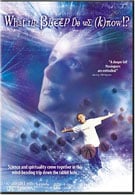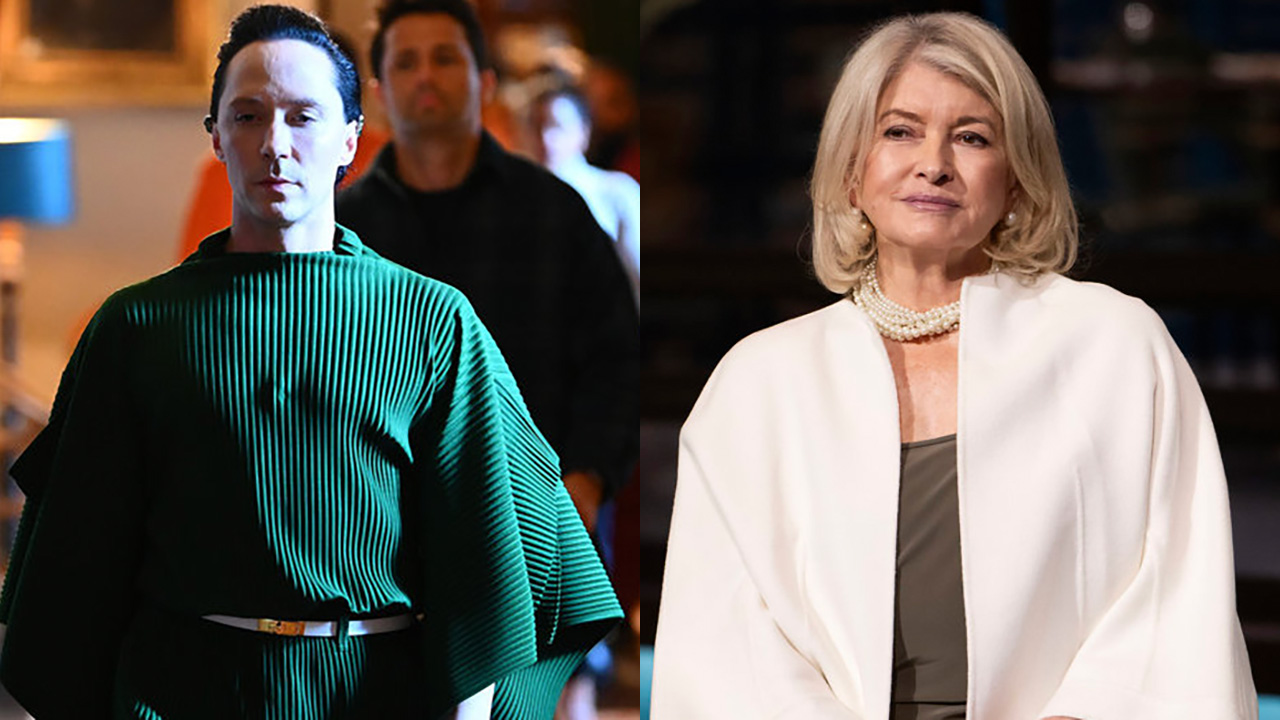What the Bleep Do We Know? is a strange mixture of documentary format, metaphysical discussion, feature film, spiritual exploration, and cartoon. If you attempt to view this movie like any other, you’ll quickly find that is stinks. It’s a plotless fictional story as a vehicle to ask humanity unanswerable questions in a continuous jumping sequence similar to that of the adult ADD commercial. If that wasn’t bad enough, they throw in some horny cartoon Jell-O as a gimmick. However, if you’re going into the Bleep without expectation, you just might find it enjoyable, with some humor, and a lot to ponder about life, thought, time, possibilities, and whether or not you have control over any of these. If you thought Taxi was 2004’s greatest hit and XXX is the best action film you’ve seen in years, quit while you’re ahead, Champ. Put on that shirt with your name on it, go to work, and don’t bother with this movie. But, if you use your brain on a regular basis and it doesn’t hurt to do so, watch What the Bleep Do We Know?. The main character, Amanda, played by Marlee Matlin, is at a crossroads in her life. Recently divorced, she’s stuck in a mental rut and as a photographer she’s constantly observing other people, but now she’s in the process of observing herself. At the same time we accompany a group of scientists as they discuss the power of thought, emotions, addictions, quantum physics, and the functions of the brain.
The problems with the film that I see are that, first, there’s way too much “new age” music. It’s constant, only slightly soothing, and most of the time drowns out what the scientists are saying. Personally, that’s a current Hollywood problem, a story usually progresses through dialogue, but if we can’t hear over the soundtrack, how can we become involved? Secondly, because we hear from all of these experts, it sadly makes the character Amanda seem flat. We can’t get into her brain for all the talking, thus making her actions tricky to predict and her thoughts about events that occur unknown. My best guess is that we’re supposed to assume her thoughts are whatever our thoughts are as we watch and listen, but it doesn’t always come across that way.
Third, she attends a wedding for her job where she proceeds to get drunk while all of the guests act like it’s prom night and scramble to find someone to screw. This is where animated cells come in. I question if these fit in with the discussion, or if Amanda is hallucinating by this point, but I’m surprised respectable scientists approved of airing out their ideas in such a childish format as a way to build awareness and open a dialogue. Finally, as far as the story line goes, I can’t decide if it’s forced or if it’s an appropriate parallel to what’s being discussed.
The reason I like Bleep is because it encourages you to think on complex aspects while incorporating a little humor (the horny Jell-O). Initially I thought they weren’t effective in pushing their messages. They don’t give any more answers to these types of questions than The Matrix did and I would have liked it if they explored some answers. (But then again, there may be no real concrete answers for these subjects, as the title suggests.) But, it has gotten me thinking a lot more, even days later. These are not new ideas from my experience. I’ve heard of most of these things before, but here it’s condensed and each aspect now relates to one another and are no longer independent issues.
It’s not beyond science, it’s not beyond “new age.” It’s a different way of thinking. Such as, you have a thought about something, but can you tell me where the thought came from? Where is that thought now? How come we can tell where in the brain the thought generated, and yet we can’t see the thought?
Anyone familiar with Deepak Chopra and Dr. Phil would not be surprised or “blown away” by this information, and anyone familiar with Pixar or the Discovery Channel would not be in awe of the special effects and animation, but the message is there: think for yourself. Don’t be force-fed ideas by society, modern medicine, or religion. (Yep, the R-word.) Now don’t take that the wrong way. To me, no one bashes religion in this film, but for anyone’s faith, you should to be able to turn it upside-down and shake out any excess lint. (If your beliefs are strong enough, it can handle dissection.) As for my perspective, I think organized religion is not the fault of God, it’s a creation of man and too many people would rather blame the former, so I wasn’t offended when anyone in the film criticized organized religion. God created beings able to question His presence and even able to reject Him. Dr. Phil would call that a strong sense of self, in other words, God can handle it if people don’t like Him. After all, isn’t science the exploration of God’s work?
So, as far as the film goes, I think you should definitely rent What the Bleep. It’s worthy of good discussion and brings to the forefront ideas and concepts we don’t necessarily encounter in our everyday lives. The trick is you need to watch it at least two times. If you like it after that: buy it. Will Arntz, Betsy Chasse, and Mark Vicente deserve to be supported in their endeavor to not underestimate us. We are more than slobbering cave people that like to stare at the sun for entertainment, and we can require more than a few explosions and teenage “sex-capades” to enjoy a film. So, if you liked the film, you will have no problem watching the extras (located on the other side of the disc). There are only two main additions: a “Filmmakers Q&A” and interview clips with the three directors and the four main actors. After those there is the theatrical trailer and a music video. The “Filmmaker Q&A” I thought was almost better than the film, but you have to have watched the film to understand what they’re talking about. Most of the information goes further in depth into the concepts presented in the movie and explains how they conducted the interviews with the scientists.
Your Daily Blend of Entertainment News
The “Interview Clips”, while strangely choppy to watch, perhaps because it’s a flipper, helped open more discussion of the ideas offered. A few sections of this explain how difficult it was to shop the film around to distributors. No one thought they could combine entertainment and thinking into a film, and they say there’s lots of popcorn out there to be eaten during thoughtless movies, but What the Bleep is a “chinese buffet” of ideas. The whole package should be seen as a relief for the film industry. They literally threw out the ideas of what it is to make a film and let it be something unique.

